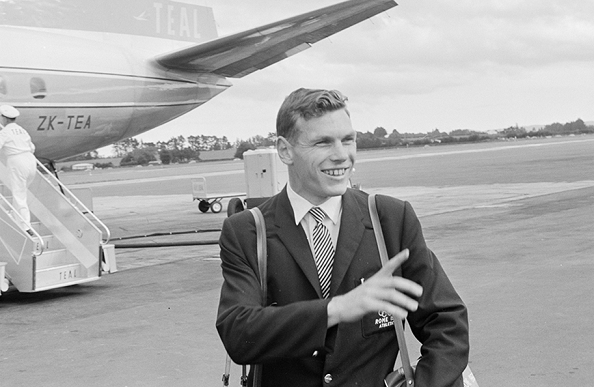Issue 45 : 15 December 2019
Talofa Lava, Kia Orana, Malo E Leilei, Tena Koutou, Hello ...
... and welcome to the latest issue of “For The Love Of The Game”, the official e-zine of the New Zealand Amateur Sport Association Inc. We hope you enjoy reading the articles below.
If you have any feedback on this issue, ideas for future articles, or would like to contact the Editor, please click here. And, you are invited to forward the e-zine to others you know, who may be interested in reading it. This is the final issue of the e-zine for 2019, with the e-zine resuming on 12 January 2020. We wish all readers a very Merry Christmas and a Happy New Year!
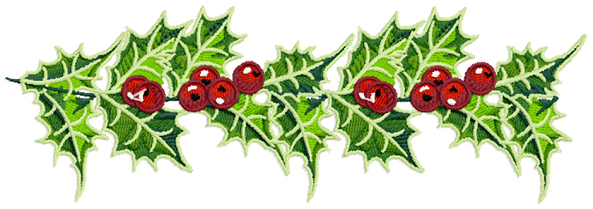
If you are interested in applying for membership of the Association, please click here.
Sport Clubs Account For One-Third Of Dissolutions ...
Since 1 January 2019, over 1,000 registered incorporated societies have been dissolved by the Registrar. Of this total, over 30% were Sport Clubs. Multi-Sport, Horse-Riding, Bowling, Martial Arts, Rugby Union, Boxing, Water-Sports, Rugby League and Netball clubs (in that order), account for over half of Sport Club dissolutions, by sporting code.

The reasons for "dissolution" generally relate to the inability of a Club to fulfil its legal obligations as a registered incorporated society, with the failure to file an Annual Financial Statement often the specific cause. “Dissolution” fundamentally alters a Club’s legal status, including: the inability to hold General Meetings; not having a legal entity to which the Club Constitution or Rules apply; the risk of the use of Club funds being declared "misappropriated"; and the personal legal liability of any person purporting to enter into any commitments on the Club’s behalf, including debts and other contractual obligations. Many Clubs are unaware of their “dissolved” status and often carry on their activities regardless, placing their Members at material legal risk.

With the Incorporated Societies Act 1908 currently an area of legislative reform, proposed changes indicate greater reporting and accountability requirements for Clubs. Of note, there appear to have been no representatives of community sport organisations on the Reference Group established by the Law Commission for the review of the current Act. Accordingly, it is unclear whether any specific consideration was given to community sport organisations and their needs. The Association will seek clarification from the Responsible Minister as to the input of community sport organisations to the proposed Bill.
Evolution Of Amateurism In New Zealand Sport ...
At the Sport Management Association of Australia and New Zealand Conference, held at the University of Canterbury earlier this month, Auckland University of Technology (AUT) PhD (Sport Management) candidate Katharine Hoskyn, presented a thesis abstract on the “Evolution of Amateurism in New Zealand Sport”.
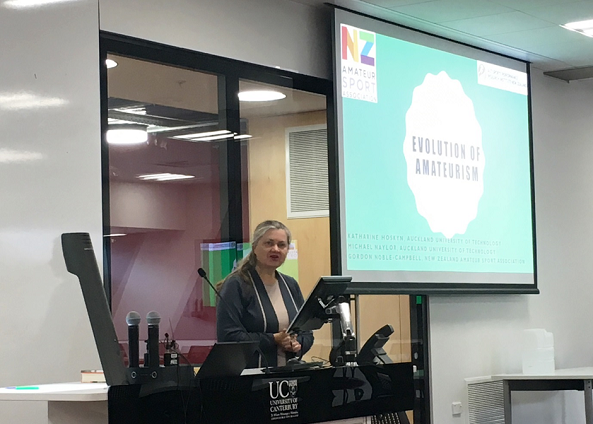
(Katharine Hoskyn at the SMAANZ Conference, in Christchurch, earlier this month)
The abstract posits that amateur sport is often discussed in contrast to more high-profile professional sport, with definitions usually focusing on financial considerations and specifically the notion that those involved in amateur sport are not remunerated. However, a sociological connotation to amateurism is also relevant relating to community and participation. The abstract was co-authored by Michael Naylor (AUT) and Gordon Noble-Campbell (New Zealand Amateur Sport Association). You can read the abstract, by clicking here.
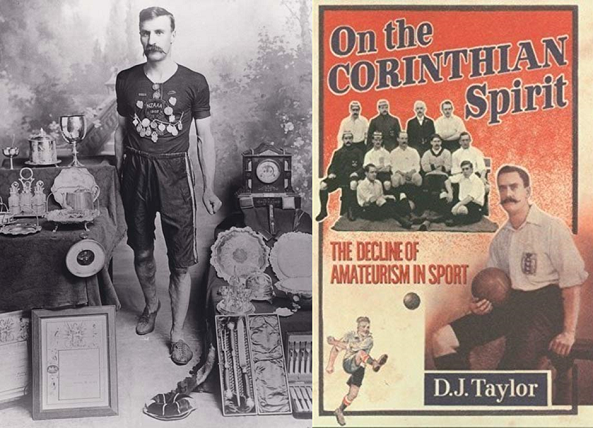
Amateur Sport – In The Balance? ...
Association Chairman, Gordon Noble-Campbell, joined Lynn Freeman on Radio New Zealand National's "Nine-To-Noon" programme on Thursday, 6 December to discuss the results of the "2019 National Sport Club Survey". You can listen to their discussion, by clicking here.
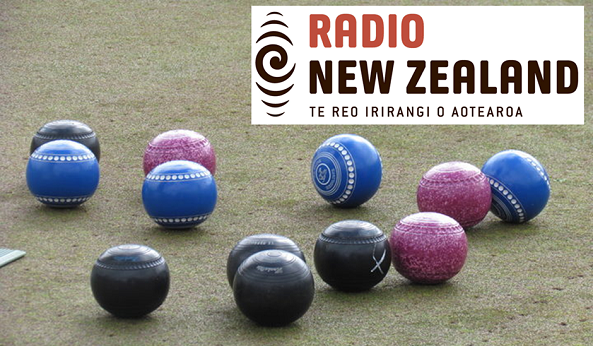
Viewpoint : Providers, Participants And Politicians ...
With many Community Sport Clubs struggling financially, many community sport participants are equally struggling to meet the financial demands of being involved in their chosen sport. The "2019 National Sport Club Survey" revealed that the average cost of an "adult playing membership" in New Zealand is now $227, (higher than in England), with a quarter of Clubs surveyed reporting shrinking membership. Golf, for example, has the highest average annual playing cost of $517 and also reports the highest rate of shrinking membership, with 52% of Clubs losing members compared to 12 months earlier. The survey data suggests a link between "affordability" and "membership", and the "value" perceived by participants for the "price" paid.

Intuitively, the fewer financial members a Club has, the harder it becomes to maintain its facilities. With nearly a half of New Zealand Clubs surveyed reporting that they “own their own home” (compared to 19% in England), the costs of maintenance and operations is likely to be an increasing financial burden over time, should membership revenues remain static or fall. In many cases, facilities have the potential to become multi-purpose, with many Clubs looking to diversify their income by renting their buildings for other community (or commercial) purposes.

Parliament has the key role in determining how top-down funding for community sport is allocated, with specific merit-based consideration required (in the opinion of this writer) to acknowledge the social benefits and mental well-being created from the existence of financially healthy Community Sport Clubs.
“Oval Hoops” Offers A New Community Sport Connection ...
The Association is a partner in a new pilot initiative in co-ordination with Wellington Rugby and Wellington Basketball. Known as "Oval Hoops", the initiative is to provide youth in the Stokes Valley area with access to two complementary sports, Rugby Union and Basketball, in their local community. While Rugby Union has infrastructure available in Stokes Valley for youth, Basketball does not. This initiative will leverage the Rugby Club's facilities, to provide basketball alongside rippa-rugby to local tamariki.
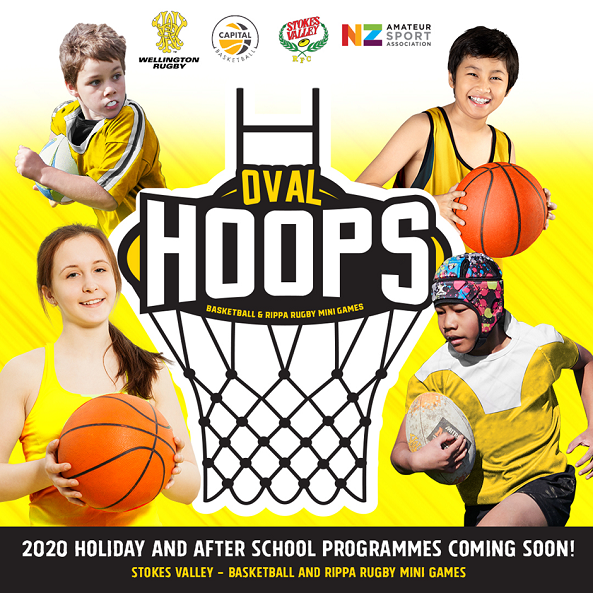
The Association believes that this type of cross-code collaboration, using existing community infrastructure in an evolutionary way, is potentially a great way to re-energise youth sport within local communities. If successful, the Association can see this type of initiative being important in involving local communities in positive sporting activity in a new way, reinforcing the unique identity and character of those that live there.
2020 National Sport Club Seminar Updates ...
Seminars on the results of the "2019 National Sport Club Survey" will continue in early March, with events planned for Dunedin, Christchurch, Tauranga and Hamilton. Dates and venues will be confirmed early in the New Year, with the first week of March the likely period in which the seminars will be held. Further details will be provided in January.

From The Archives ...
SPORT FIRST
DUNSTAN TIMES, ISSUE 3329, 12 JULY 1926
"Dr R. Katz, who has been on a world tour and has spent a good deal of time in New Zealand, supplies some interesting impressions to German newspapers.
"The Antipodes,” says Dr Katz, "are more modern than we are, and on that account, more fond of sport. The sacred tree of European “tradition” does not throw its shadow across 111,000 miles of sea to young, sparsely-settled New Zealand. Here there are no social classes to monopolise single branches of sport, as sometimes in Germany or in England … from riding, sailing, motoring, rowing, down to football in an industrial suburb. Quite the reverse. The golf clubs are quite democratic. A millionaire does not feel any sort of degradation if he happens to have a tram driver as an opponent."
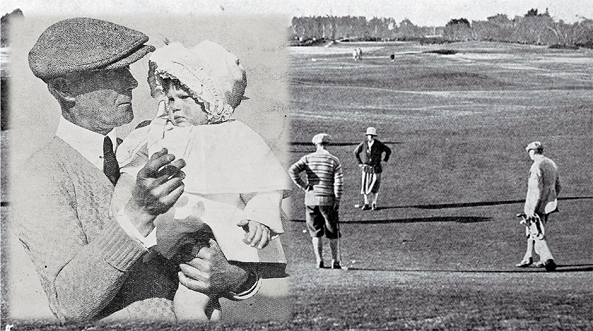
(Arthur D Duncan, N Z Amateur Golf Champion of 1926, "10-time champion" since 1899)
"German sports organisations might learn many things from those of New Zealand. Especially might they learn to cultivate this sporting spirit, this democratic equalisation of all branches of sport. Of yet greater value would be a visit to New Zealand by our city and municipal administrators. They would be astonished to see how closely the town councils of the present co-operate with the different sport clubs and they would see for themselves that the New Zealand clubs in consequence of such co-operation have lifted themselves of the material cares from which ours are suffering."
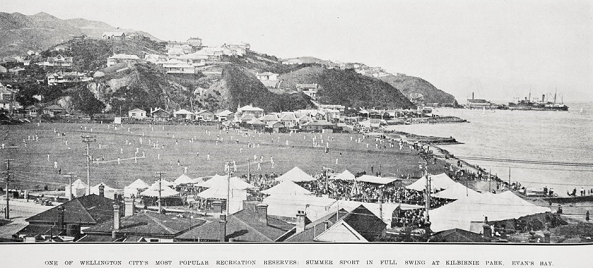
(Kilbirnie Park in Wellington in 1926, one of Wellington City’s most popular recreation reserves)
"And, finally, if also here political parties like to make war on one another, they can still find themselves able to work effectively together when the promotion of sport is the subject of debate. I believe that this is the true way to deal with the question of our own race - to breed a vigorous and a happy people.”
The Final Word ...
"Get up from the couch and the computer, and play something active!"
(Peter Snell, Olympian : 1938 - 2019 : "Requiescat in Pace")
